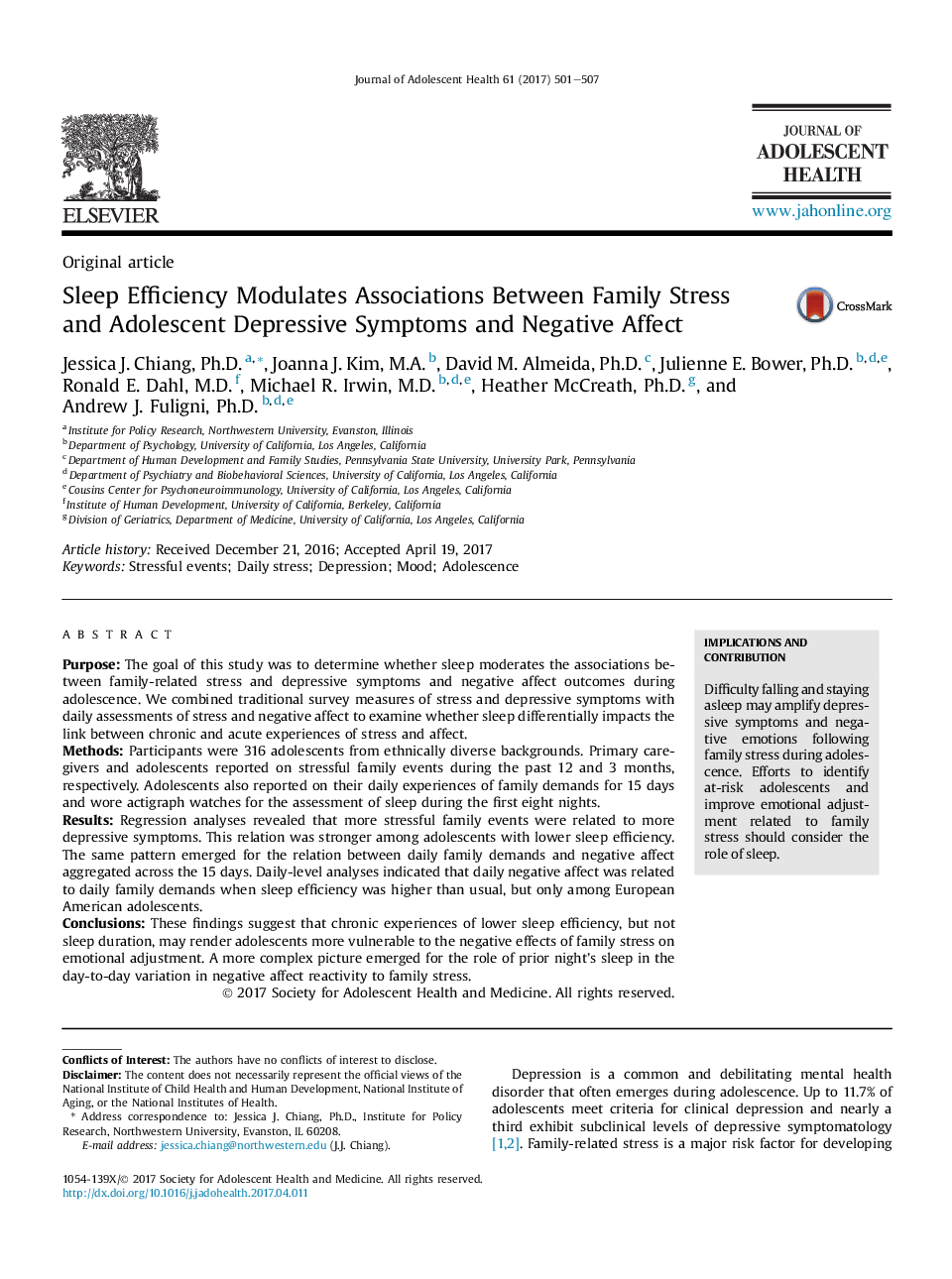| Article ID | Journal | Published Year | Pages | File Type |
|---|---|---|---|---|
| 5121166 | Journal of Adolescent Health | 2017 | 7 Pages |
PurposeThe goal of this study was to determine whether sleep moderates the associations between family-related stress and depressive symptoms and negative affect outcomes during adolescence. We combined traditional survey measures of stress and depressive symptoms with daily assessments of stress and negative affect to examine whether sleep differentially impacts the link between chronic and acute experiences of stress and affect.MethodsParticipants were 316 adolescents from ethnically diverse backgrounds. Primary caregivers and adolescents reported on stressful family events during the past 12 and 3 months, respectively. Adolescents also reported on their daily experiences of family demands for 15Â days and wore actigraph watches for the assessment of sleep during the first eight nights.ResultsRegression analyses revealed that more stressful family events were related to more depressive symptoms. This relation was stronger among adolescents with lower sleep efficiency. The same pattern emerged for the relation between daily family demands and negative affect aggregated across the 15 days. Daily-level analyses indicated that daily negative affect was related to daily family demands when sleep efficiency was higher than usual, but only among European American adolescents.ConclusionsThese findings suggest that chronic experiences of lower sleep efficiency, but not sleep duration, may render adolescents more vulnerable to the negative effects of family stress on emotional adjustment. A more complex picture emerged for the role of prior night's sleep in the day-to-day variation in negative affect reactivity to family stress.
